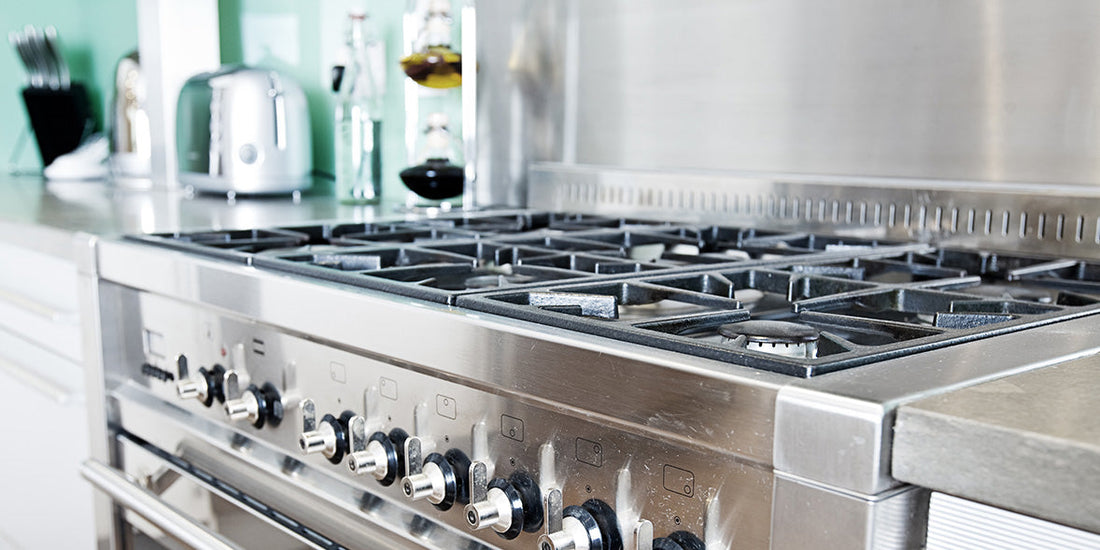
Share
🔥 Gas Hob and Cooker Safety: Common Mistakes to Avoid
Stay Safe in the Kitchen with These Essential Gas Appliance Tips
Gas hobs and cookers are found in millions of UK homes — and for good reason. They’re fast, responsive, and ideal for everyday cooking. But as with all gas appliances, they must be used and maintained correctly to keep you and your household safe.
In this blog post, we’ll highlight the most common gas hob and cooker safety mistakes people make — and how to avoid them.
⚠️ Why Gas Safety in the Kitchen Matters
Unlike electric appliances, gas cookers involve a live flame, gas supply, and combustion. If something goes wrong, it could lead to:
- Gas leaks
- Fires or explosions
- Carbon monoxide poisoning
- Illegal and dangerous installations
Following basic safety rules helps ensure peace of mind while you cook.

❌ 10 Common Gas Hob and Cooker Safety Mistakes (and How to Avoid Them)
1. Not Using a Gas Safe Registered Engineer for Installation
Only a Gas Safe registered engineer is legally allowed to install a gas hob or cooker. DIY or handyman installations can be illegal and unsafe.
✅ What to do:
Always ask to see the engineer’s Gas Safe ID card and verify them on gassaferegister.co.uk.
2. Blocking Ventilation
Your cooker or hob needs proper ventilation to burn gas safely. Blocking air vents or extractor fans can lead to dangerous gas or carbon monoxide buildup.
✅ What to do:
Keep surrounding areas clear. Ensure extractor fans and vents are working and unobstructed.
3. Leaving Gas Burners Unattended
Leaving a pan on the hob while you step out “just for a second” is one of the most common causes of kitchen fires.
✅ What to do:
Stay in the kitchen when cooking. If you must leave, turn the burner off.
4. Incorrect Pan Sizes
Using pans that are too small or too large can lead to instability, wasted heat, or gas flames licking up the sides.
✅ What to do:
Match your pan size to the burner. Ensure the base covers the flame and sits flat on the pan supports.
5. Allowing Food or Grease to Build Up
A dirty hob can be a fire hazard. Spilled grease and food debris can ignite from open flames.
✅ What to do:
Wipe down your hob regularly and keep pan supports clean and clear.
6. Turning the Knob Without Igniting
Letting gas flow without ignition can allow unburned gas to build up, creating a fire or explosion risk.
✅ What to do:
If your igniter fails, turn off the gas immediately and ventilate the kitchen before trying again.
7. Poor Maintenance or Ignoring Issues
Signs like orange flames, soot buildup, or a strange smell indicate incomplete combustion or faulty parts.
✅ What to do:
Get your cooker serviced annually by a Gas Safe engineer and address any issues promptly.
8. Using the Cooker to Heat Your Kitchen
This may seem like a shortcut on cold days, but it’s dangerous and strongly discouraged.
✅ What to do:
Never use your cooker or hob for space heating. It can cause carbon monoxide to build up.
9. Not Having a Carbon Monoxide Alarm Nearby
Carbon monoxide (CO) is a silent killer. It’s colourless, tasteless, and odourless — and faulty cookers can emit it.
✅ What to do:
Install a CO alarm in or near your kitchen, but not directly above the hob. Test it regularly.
10. Failing to Register or Insure the Appliance
If your gas cooker is new, registering it ensures you're covered by the manufacturer’s warranty and recall alerts.
✅ What to do:
Register the appliance as soon as it’s installed and check if it’s eligible for cover or service plans.
🧯 What To Do If You Smell Gas
If you suspect a gas leak:
- Turn off the gas at the meter (if safe to do so)
- Open all windows and doors
- Avoid using electrical switches or naked flames
- Leave the property
- Call the National Gas Emergency Service: 📞 0800 111 999
Do not attempt to fix gas leaks yourself.
🔧 When to Call a Professional
Contact a Gas Safe registered engineer if:
- Your hob or cooker isn’t lighting properly
- The flame is yellow or orange
- You smell gas or feel unwell after using the cooker
- You haven’t had a safety check in over 12 months

🏠 Safety First in the Kitchen
Gas cookers and hobs are safe when installed and used correctly — but they require awareness, maintenance, and caution.
🎯 Final tip: Make gas safety a habit — not an afterthought.
📞 Need Help with Gas Hob or Cooker Safety?
At Gas-Go Heating, our engineers are fully Gas Safe registered and qualified to install, repair, and inspect gas cookers and hobs.
✅ Cooker installations
✅ Safety checks
✅ Fault diagnosis
✅ Carbon monoxide testing
📆 Give us a call on 02393 782351.
